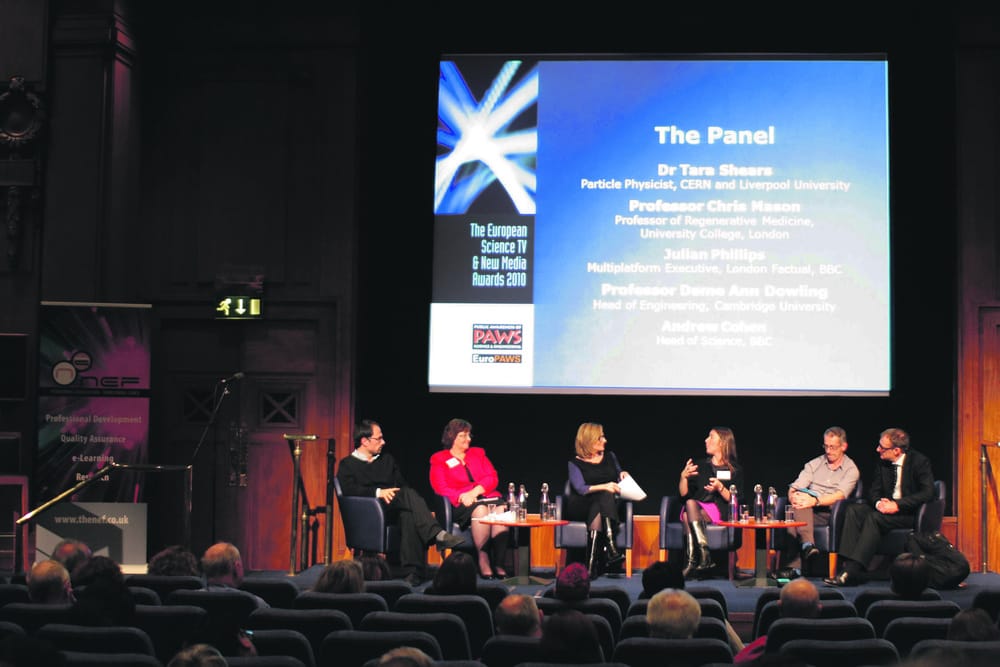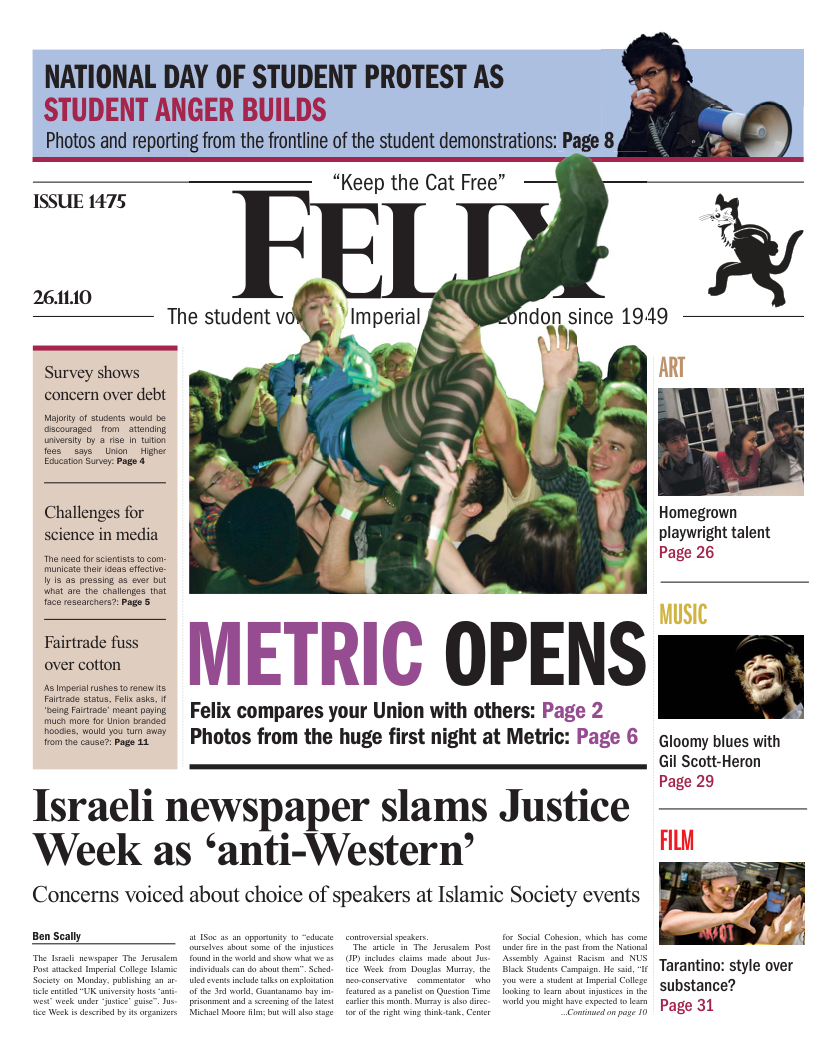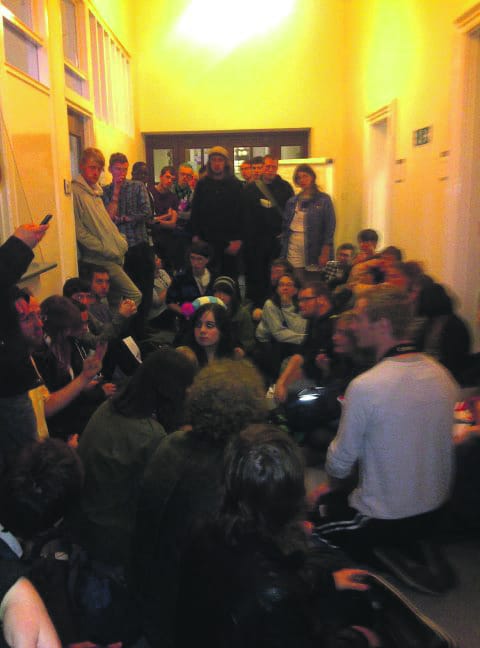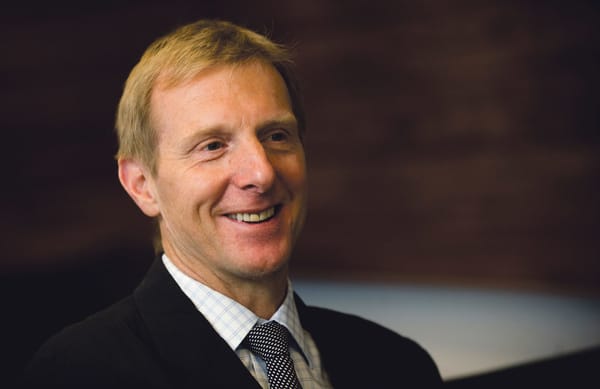Celebrating science in media
An evening of awards and discussion on the challenge of communication science

On Monday the Public Awareness of Science and Engineering organisation, PAWS, held The European Science TV and New Media Awards Evening at the prestigious Institute of Engineering and Technology (IET). A fitting location to celebrate science in the media, as the IET was once home to the BBC many years ago! This is the first year which has seen the celebration of science in TV and New Media throughout Europe. The awards recognised a variety of countries for documentaries, general programming and new media, as well as more unusual categories such as science in TV drama.
The evening was a celebration of science in media, but highlighted some important points that those involved in science at Imperial should take note of. Susan Rae, voice of Radio 4’s news facilitated the evening and highlighted that the awards were presented to those who “bring daunting science and technology to light.” This was echoed by Dr Mike Short, Director of the IET. He noted that over the last two decades science have developed at a phenomenal rate, to the point where people cannot keep up. There is always a constant need to communicate science. But it seems that people from different walks of life, from researchers to broadcasters, have vastly different views on who should communicate science, and how that communication should take place.
Professor Ann Dowling, from the University of Cambridge and keynote speaker of the evening, highlighted the importance of science in society. “Choices [about science and technology] are too important to leave to engineers and scientists alone.” She emphasised the need for more dialogue between scientists and the public, and suggested that increased objectivity could be obtained on science policies if everyone were more involved in the decision making process. The challenge for any scientist is therefore to find a way to convey the complexity of their science without undermining the fact that they can make a considerable difference to the world. Professor Dowling maintained that “science and engineering communication should remain a priority for the considerable future.” Science is undoubtedly increasingly prevalent in society. Professor Dowling’s views highlight the views of many; that present and future scientists will need to find a way to communicate their science, or work with those that can do that for them.
The second keynote speaker, Andrew Cohen, head of BBC science, noted that earlier this year “[science broadcasting] started to get noticed in a way that [the BBC] were not used to.” This was heavily linked in with the public’s reception of the ‘Wonders of the Solar System’ series, and the now phenomenally popular ex D:RREAM keyboard player and physicist Dr Brain Cox. Mr Cohen praised Brian Cox with injecting romance and emotion into science broadcasting. As any researcher knows, despite a relationship with your research that can sometimes fall rather on the hate side of love-hate, you would not be doing it unless you had strong emotions about the subject, so it is interesting to see this recognised.
Mr Cohen also highlighted the importance of finding different methods of communicating science to difference audiences. There seems to be an overwhelming push to have more researchers communicating with the public, either directly or through media outlets. However, this push is coming from broadcasters and large organisations, not the researchers themselves. When budgets are being cut and researchers are being forced to do even more in the same amount of time; can they really find the time to increase their dialogue with the public, and do it in a number of different ways?
One of the special awards at the evening was for “the best presentation of, or by, a woman in science and engineering”. It is well documented that there are fewer women participating in science, and that is certainly still true. This is also the case across the media, and I wonder whether we shouldn’t be doing more to address this.
“I think everyone in all walks of life should have certain mental objectives. And one of them should be are there enough women on your panels and on programmes,” explained Andrew Millington, director of the awards. “There is a big gender issue that needs to be addressed. If you do comparisons with other countries, for example in Italy there are? 42%, or about that, of physics undergraduates that are women. That’s well above what that is [in the UK]. There were three reasons that were identified. One of them is that they specialise later [at school], at 19. Two is that physics is seen as part of culture in Italy, going back to Gallileo, Leonardo and so on. And three, they get support in the home. It isn’t seen as something that a girl shouldn’t be doing. Now all those three things aren’t the same here and I’m a little surprised that people haven’t been taking an international comparison and worked on it.”
The BBC and the UK was well represented in almost all categories but notably absent from one; science and technology in TV drama. The representative who presented the award even highlighted this before presenting the award, “It’s a bit sad that the UK isn’t represented. Why aren’t we getting more funding and more commitment from the commissioners [in the UK] for science and technology in TV drama?”
Andrew Millington explained that one of the objectives of the evening was in fact to highlight the potential for science in TV drama. He explained that it is currently an area which is massively underrepresented. Drama is classed under arts, and this label automatically implies a socially imposed separation from science and technology. Where science has featured in drama previously, it has mainly taken the form of science fiction. Andrew explained that “science fiction was born in an era where science wasn’t so dominant,” and now that ‘real’ science is much more dominant it might be easier to incorporate. However, it is still a massive challenge for writers. Andrew gave an example of a BBC drama writer who had explained the depth of research he had to do. “It took him four years, from starting research right up to the end of the production.”
I suggested that people are scared of taking on that challenge. Andrew agreed strongly, “From two points of view. Firstly, writers don’t think the commissioners will respond to it and two because they themselves have got to do a lot of work for which initially they don’t get paid. So there are several barriers to overcome. We find almost all arts people recognise intellectually that science is becoming more and more dominant but they haven’t internalised it emotionally if you like.”
These awards celebrating science in the media may be one step in addressing science’s separation from society, but there are others. I wrote recently about the phenomenon that is Zooniverse, a citizen science project which invites the public to participate in scientific research online. Julian Philips mentioned that projects such as this could be a way of enticing the lay public’s interest but with the benefit of generating actual scientific data; Zooniverse has over a dozen scientific papers to its name so far. The BBC is doing something similar with LabUK, which “harnesses a huge audience that academics might not be able to.” Earlier this year a Nature paper was published off the back of a huge LabUK study which famously showed that brain training games don’t work.
However, as a final thought, when Andrew Cohen was asked whether he felt the pressure of representing all areas of science, he simply said, “I represent the viewers.” The aspects of science the license fee payers are already interested in are the ones that get broadcast. So as, well as finding the time and best way to introduce dialogue between the science community and the public, it turns out it’s also a competition to get their attention!







